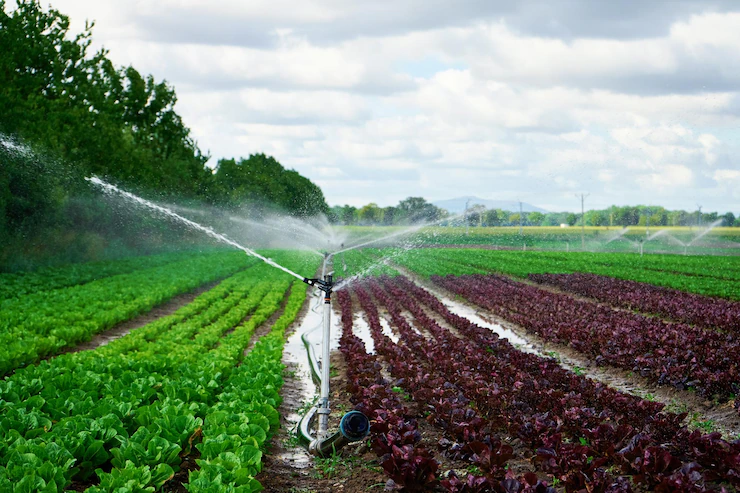Water conservation and efficient irrigation practices are crucial in South African agriculture due to the country’s semi-arid and arid climate, limited water resources, and growing demand for agricultural production. Implementing sustainable water management strategies can help optimize water usage, reduce waste, and ensure the long-term viability of the agricultural sector. Here are some key practices and approaches:
- Drip Irrigation: Drip irrigation is an efficient method that delivers water directly to the plant roots, minimizing evaporation and reducing water loss due to wind and runoff. This system uses a network of pipes and emitters to provide precise amounts of water to each plant, optimizing water usage.
- Precision Irrigation: Precision irrigation techniques involve using advanced technologies such as soil moisture sensors and weather data to determine the water needs of crops accurately. This information helps farmers apply water only when and where it is necessary, preventing over-irrigation and water wastage.
- Mulching: Mulching involves covering the soil surface around plants with a layer of organic materials like straw, wood chips, or crop residues. This practice helps reduce evaporation, suppress weed growth, and maintain soil moisture, thereby reducing the amount of water required for irrigation.
- Crop Rotation and Selection: Implementing crop rotation and selecting drought-tolerant or water-efficient crop varieties can help optimize water usage in agriculture. By diversifying crops and choosing varieties that require less water, farmers can reduce overall irrigation demands and enhance water conservation.
- Water Recycling and Reuse: Implementing water recycling and reuse systems in agricultural operations can significantly reduce water consumption. Techniques such as capturing and treating runoff or using treated wastewater for irrigation can help conserve freshwater resources.
- Soil Management: Proper soil management practices, such as regular soil testing, adding organic matter, and improving soil structure, can enhance water holding capacity and reduce the need for frequent irrigation.
- Irrigation Scheduling: Implementing efficient irrigation scheduling techniques, such as monitoring weather conditions, soil moisture levels, and crop water requirements, can help farmers optimize irrigation timing and duration, avoiding water wastage.
- Education and Training: Raising awareness and providing education and training programs for farmers on water-efficient practices are crucial for promoting their adoption. Government agencies, agricultural organizations, and research institutions can play a significant role in disseminating knowledge and providing support to farmers.
- Water Pricing and Incentives: Governments can implement policies that encourage efficient water use in agriculture, such as implementing tiered water pricing structures or providing financial incentives for farmers who adopt water-saving technologies and practices.
- Research and Development: Continued research and development in water-efficient irrigation technologies and practices are essential. Investment in innovative solutions, such as smart irrigation systems and crop breeding programs for drought tolerance, can further enhance water conservation in South African agriculture.
It is important to note that the implementation of these practices should be context-specific, considering local climatic conditions, soil types, crop types, and available resources. Collaboration between farmers, government agencies, researchers, and other stakeholders is vital to drive widespread adoption of water conservation and efficient irrigation practices in South African agriculture.
Join 'Farmers Mag' WhatsApp Channel
Get the latest Farming news and tips delivered straight to your WhatsApp
CLICK HERE TO JOIN






